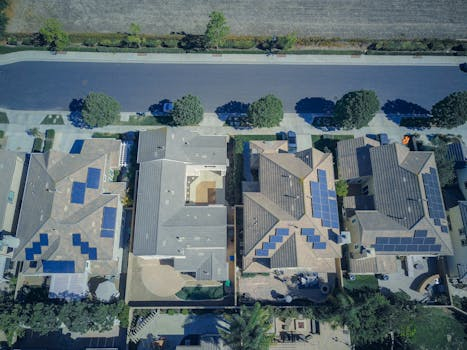Gen Z Buyers: Prioritizing Sustainability and Tech-Ready Homes
As the first digitally native generation, Gen Z buyers have a unique perspective on their priorities when it comes to purchasing a home. With technology constantly evolving and the ever-increasing concern for environmental sustainability, it’s no surprise that this generation has their own set of criteria when it comes to finding their dream home. Gone are the days of cookie-cutter houses and old-fashioned amenities. In this article, we’ll delve into the key factors that drive Gen Z buyers to prioritize sustainability and tech-ready homes, and how the real estate industry is adapting to meet their demands.
The Rise of Gen Z Buyers
Born after 1997, Gen Z makes up almost a quarter of the population and is quickly becoming a major player in the real estate market. They are known for their tech-savviness, social consciousness, and diverse backgrounds. Growing up in a world surrounded by technology, it’s no wonder that Gen Z buyers have a strong preference for modern and tech-ready homes. They are also the most racially and ethnically diverse generation, with an increasing awareness of social and environmental issues.
Sustainability is a Top Priority
Compared to previous generations, Gen Z buyers place a higher value on sustainability and environmental consciousness. A study by McKinsey found that this generation is willing to spend up to 10% more on products that align with their values, including those that are eco-friendly and sustainable. This mindset also translates into their home buying decisions. A survey by the National Association of Home Builders found that 84% of Gen Z buyers are willing to spend more on renewable energy features in their homes.
Solar Panels and Energy Efficiency
One of the most popular eco-friendly features among Gen Z buyers is the use of solar panels and energy-efficient technology. With a focus on reducing their carbon footprint, this generation is willing to invest in homes that are equipped with these environmentally-friendly features. Energy-efficient homes save money on utility bills and reduce the impact on the environment, making them a top priority for Gen Z buyers.
Sustainable Materials and Design
Aside from energy efficiency, Gen Z buyers are also attracted to homes that are built with sustainable materials and incorporate sustainable design features. This can range from using recycled or local materials to constructing homes that are designed to maximize natural light and airflow. These sustainable design features not only benefit the environment but also appeal to the modern aesthetic taste of this generation.
Embracing Technology
Growing up with the internet and smartphones, Gen Z buyers are extremely tech-savvy and expect their homes to reflect this. This means having features such as smart home technology, high-speed internet, and energy-efficient appliances. They also value convenience, and technology provides them with the ability to remotely control and monitor their homes, from turning on the lights to adjusting the thermostat.
Smart Home Technology
Smart home technology has become a staple feature for Gen Z buyers. It allows them to control various aspects of their homes through their smartphones or voice-activated devices. This includes controlling lighting, security systems, and home appliances. Smart home technology not only offers convenience but also enhances the overall living experience for this generation.
Virtual Tours and Online Platforms
With the ongoing COVID-19 pandemic, virtual tours and online platforms have become essential for home buying. Gen Z buyers are accustomed to using technology for everything, including finding their dream home. Online platforms, such as real estate websites and social media, are a vital tool for this generation to research homes and connect with real estate agents. Virtual tours also allow them to view multiple properties without having to physically visit each one.
The Real Estate Industry Adapts
With Gen Z buyers having a significant influence on the real estate market, the industry has had to adapt to meet their changing demands. This includes incorporating sustainable and tech-ready features into newly built homes, as well as updating older homes to meet the expectations of this generation. Real estate agents have also had to embrace technology and find new ways to market and sell homes to Gen Z buyers.
In Conclusion
Gen Z buyers are making their mark in the real estate market with their focus on sustainability and technology. As the first truly digital generation, they have transformed the way homes are bought and sold, with a particular emphasis on eco-friendly features and modern technologies. With their passion for the environment and tech-savviness, Gen Z buyers are shaping the future of the real estate industry and driving it towards a more sustainable and connected approach.









